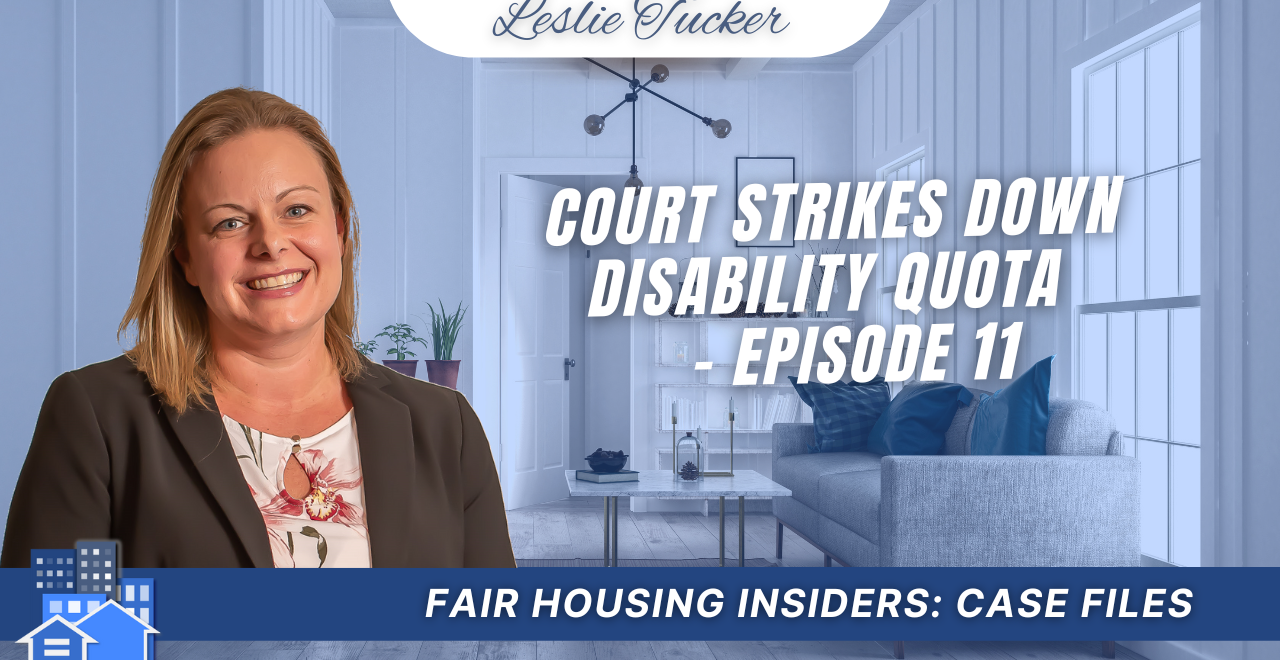The intersection of fair housing laws and the accommodation of individuals with disabilities presents a complex and often misunderstood legal landscape. A particularly intricate case from New York highlights these challenges. This article aims to unpack the nuances of this case and its implications for property managers and housing providers.
Oceanview Home for Adults v. Howard Zucker, (E.D. N.Y.)
The Heart of the Case: New York’s Regulation on Housing and Mental Illness
The case in question revolves around a New York Department of Health regulation, which mandates that transitional adult homes (privately owned long-term care facilities) with a capacity of 80 beds or more limit the number of residents with serious mental illness to only 25% of their population. This regulation was introduced based on clinical advisories suggesting that such settings are not conducive to the recovery or rehabilitation of individuals with serious mental illnesses. The intention was to promote a more integrated approach, preventing the segregation of these individuals into specific housing facilities. The effect of this regulation is that once a facility has reached this 25% mark, it must deny applicants with serious mental illness so as not to exceed its limit.
The Legal Challenge: Fair Housing Act vs. State Regulation
The regulation faced a legal challenge from an operator of one of these transitional adult homes. The plaintiff argued that the regulation violates the Fair Housing Act (FHA) by requiring housing decisions to be made based on an individual’s disability. The core of the dispute was the tension between the state regulation aimed at preventing the institutionalization of people with mental illnesses and the FHA’s mandate to not make housing decisions based on disability.
The Department of Justice (DOJ) weighed in with a statement of interest supporting the state regulation, emphasizing the importance of integrating individuals with severe mental illnesses into the broader community rather than segregating them into specific facilities. However, the state’s Supreme Court ultimately ruled that the regulation does indeed violate the FHA, as it restricts housing choices for individuals with mental disabilities, potentially forcing them into less suitable accommodations like nursing homes or shelters.
Implications for Housing Providers
This case presents several key takeaways for housing providers and property managers:
1. Housing Choice and Disability: The ruling reaffirms that denying individuals housing based on their disability, including mental illness, is against the law. Housing providers must ensure that their policies and practices do not discriminate against potential residents with disabilities.
2. Supportive Services: While housing providers are not required to arrange or provide supportive services for residents with serious mental disabilities, they must allow residents the opportunity to access external services. This could involve facilitating connections to local service providers or ensuring that housing policies do not hinder residents’ ability to receive necessary support.
3. Navigating Legal Complexities: The case illustrates the intricate balance between state regulations aimed at public health and welfare and federal laws like the FHA. Housing providers must navigate these complexities carefully, ensuring compliance with both sets of laws to avoid legal challenges and to promote fair housing practices.
Navigating the Future of Housing with Compassion and Compliance
The New York case offers valuable insights into the challenges of providing housing to individuals with mental illnesses within the framework of fair housing laws. For property managers and housing providers, it underscores the importance of understanding and navigating the legal landscape to ensure that their policies are both compliant and conducive to the well-being of all residents. As the conversation around fair housing and mental illness continues to evolve, staying informed and engaged with these issues will be crucial for those in the housing industry.

